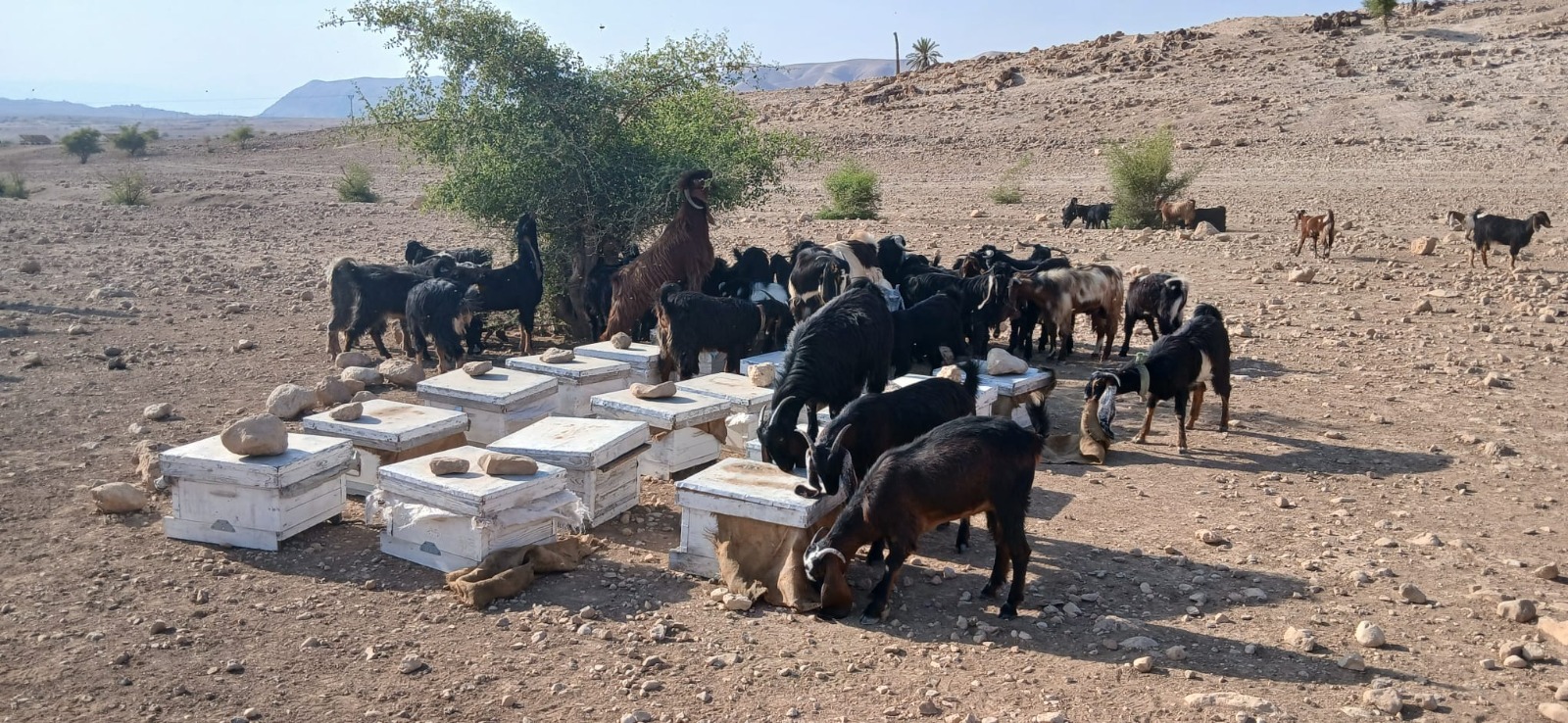Weekly Summary
October 12–18, 2025
Weekly Summary
October 12–18, 2025
Weekly Summary
October 12–18, 2025




Weekly Summary
October 12–18, 2025
Weekly Summary
October 12–18, 2025
Weekly Summary
October 12–18, 2025
Summary
Settlers from the illegal outposts surrounding Ras Ein al-Auja, including minors, vandalized electrical and water infrastructure during a violent invasion early in the week into privately owned Palestinian lands. At the same time, they spread false incriminating accusations against the village residents.
Throughout the week, settlers from a nearby outpost were documented bringing their herds to the villagers’ beehives, allowing the animals to press against the hives, threatening the residents and their beekeeping livelihood. By the end of the week, three hives had been stolen.
As in every week, settlers invaded the village courtyards daily with their flocks, intimidated women and children, and prevented the residents from grazing their own sheep or living normal lives. Once again, the police and security forces failed to stop this ongoing campaign of terror.
Sunday
In the morning, three settlers entered the residential area of Ras Ein al-Auja, claiming they had discovered water theft from the national company Mekorot. They dug up and cut underground water and electricity lines. The police were called but arrived late, by which time more settlers had joined. Later in the day, police, a council inspector (Meir Nir), a Mekorot representative, the security coordinator of Mevot Yericho, and soldiers came to the scene. The Mekorot inspector claimed that a chemical test had “proven” the water was stolen!? The following day, complaints were filed regarding the damage to property and the settlers’ false accusations against the villagers.
Monday
A settler drove through Ras Ein al-Auja, threatening girls who were playing outside. Later in the day, another settler arrived with his herd, frightening the children into running home.
Tuesday
Several herds and many settlers roamed throughout the village. Some stayed near their animals, others sat idly close to residents’ homes and their mere presence spreading fear. The presence of human rights activists in the area prevented direct attacks on the villagers.
Wednesday
Settlers tried to bring their herds closer to the residents’ houses, but the protective presence of five activists for two hours ensured that the animals stayed at the 30-meter distance set by army and police orders.
Thursday
A settler herd climbed, under its shepherd’s direction, onto the Salameh family’s animal feed piles and their solar panels. In another part of the village, settlers broke into land surrounding a home. Human rights activists accompanied the Palestinian homeowner to the police to file a complaint, but officers scolded him, expelled him from the station compound, and made him wait for hours in the sun for a patrol to escort him back inside — per “procedure."
Friday
Two settlers from the outpost near Ras Ein al-Auja harassed "Looking the Occupation in the Eye" activists. In the beehive area, settlers’ herds trampled solar panels and hives. A masked settler on horseback, armed with a club, galloped through the eastern part of the village filming the area. He then rode close to activists and residents, approaching buildings and filming their interiors.
Around noon, about a dozen activists stood at the Za’atara junction in the occupied West Bank holding signs against the occupation and settler violence. Palestinian drivers greeted them warmly (a few settlers cursed them). One Palestinian sent this message:
"You are doing such great work at Zatara checkpoint. I wish I could see you all and say hello to all/"
Saturday
The harassment of the Ras Ein al-Auja beekeepers escalated when a settler in a Ranger off-road vehicle stole three hives. The theft was filmed as the vehicle drove toward the settlers` outpost. A police officer arrived, and the footage was handed over.
In the morning, in Tel Aviv, "Looking the Occupation in the Eye" activists who take part in protective presence missions in the Jordan Valley and other areas in the West Bank held a meeting. About 40 activists attended a lecture about the legal framework of their work, their legal rights, and ways to defend them. They were instructed on how to film and distribute information from the field effectively for use on social media and in the press. A discussion followed on norms and modes of conduct when interacting with settlers and Palestinians in the field.